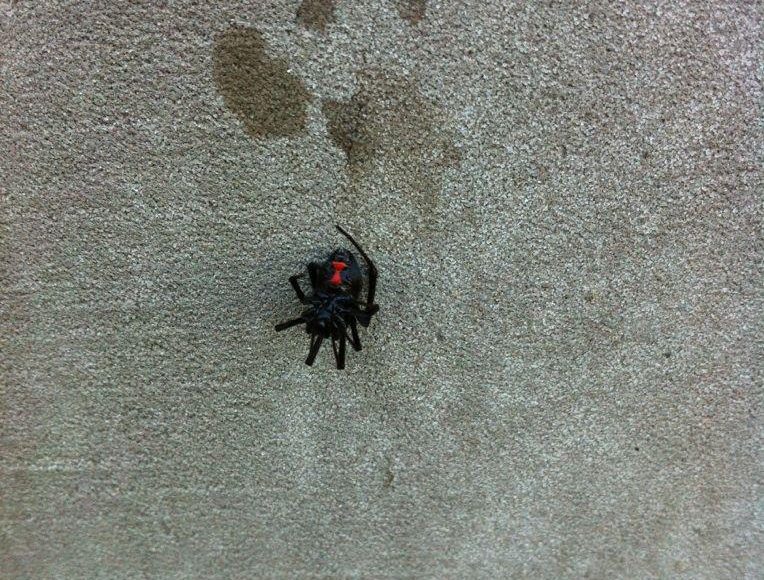- By Caleb
- In Uncategorized
- Tags Spider Control, Spiders
Fill out the form below and a Cypress Creek representative will be in touch with you about your pest control needs.

Spiders have a knack for showing up in the most unwelcome places. One minute you’re reaching for a towel, the next you’re face-to-face with an eight-legged visitor that sends you scrambling. While most spiders are harmless and even beneficial, nobody wants them as uninvited houseguests.
Houston’s warm, humid climate creates the perfect breeding ground for various spider species. From common house spiders to more concerning varieties like black widows and brown recluses, our region hosts them all. The good news? With the right prevention strategies, you can significantly reduce spider populations around your home.
Understanding spider behavior and implementing proven prevention methods will help you maintain a spider-free environment year-round. Let’s explore the most effective ways to keep these arachnids where they belong—outside.
Spiders don’t randomly select homes to invade. They’re drawn to specific conditions that meet their survival needs. Understanding these factors helps you eliminate the attractions that bring them indoors.
Spiders follow their food supply, which consists primarily of insects. If your home harbors flies, mosquitoes, ants, or other small insects, spiders will naturally follow. Areas with high insect activity—like kitchens with crumbs, bathrooms with moisture, or basements with poor ventilation—become spider magnets.
Outdoor lighting also contributes to the problem. Bright lights attract flying insects, which in turn attract spiders looking for an easy meal. Consider switching to yellow or sodium vapor bulbs, which are less attractive to insects.
Like most living creatures, spiders need water to survive. Leaky pipes, poor ventilation, and high humidity levels create ideal spider habitats. Basements, crawl spaces, attics, and bathrooms often provide the moisture spiders seek.
Houston’s naturally humid climate compounds this issue. Without proper moisture control, your home becomes increasingly attractive to spider populations.
Spiders prefer dark, undisturbed areas where they can build webs and lay eggs undisturbed. Cluttered spaces, storage areas, and rarely cleaned corners provide perfect hiding spots. Even small cracks and crevices offer entry points and nesting opportunities.
Preventing spider infestations requires a multi-faceted approach targeting their food sources, moisture needs, and hiding places.
The most effective long-term spider control starts with controlling other insects. Regular pest control treatments that target flies, mosquitoes, ants, and other spider prey will naturally reduce spider populations.
Keep your home clean and free of food debris. Vacuum regularly, wipe down surfaces, and store food in sealed containers. Pay special attention to areas where crumbs might accumulate—under appliances, in pantries, and around dining areas.
Address outdoor insect problems as well. Mosquito control treatments, proper yard maintenance, and elimination of standing water sources all contribute to reducing the insect populations that attract spiders.
Fix leaky pipes, faucets, and other water sources immediately. Use dehumidifiers in basements and other moisture-prone areas to maintain humidity levels below 50%. Ensure proper ventilation in bathrooms, kitchens, and laundry rooms.
Check your home’s exterior for moisture problems too. Clean gutters regularly, ensure proper drainage around your foundation, and address any water intrusion issues promptly.
Spiders can squeeze through surprisingly small openings. Inspect your home’s exterior and seal cracks in the foundation, gaps around windows and doors, and openings where utilities enter the building. Use caulk, weatherstripping, or expanding foam as appropriate.
Don’t forget about screens on windows and vents. Repair or replace damaged screens to prevent spider entry while maintaining ventilation.
Declutter storage areas, basements, and garages. Store items in sealed plastic containers rather than cardboard boxes, which spiders can easily penetrate. Keep stored items off the floor and away from walls when possible.
Outdoors, trim vegetation away from your home’s exterior. Remove woodpiles, debris, and other materials that provide spider shelter near your foundation.
Some spider situations require professional intervention. If you’re dealing with venomous species like black widows or brown recluses, don’t attempt removal yourself. Professional pest control technicians have the training and equipment to handle dangerous spiders safely.
Large infestations or persistent spider problems also warrant professional treatment. Pest control experts can identify the specific species you’re dealing with, locate their nesting areas, and implement targeted treatment strategies.
Professional pest control companies like Cypress Creek Pest Control bring decades of experience to spider prevention. Since 1968, we’ve protected over 12,000 Houston-area homes from pest problems, including spider infestations.